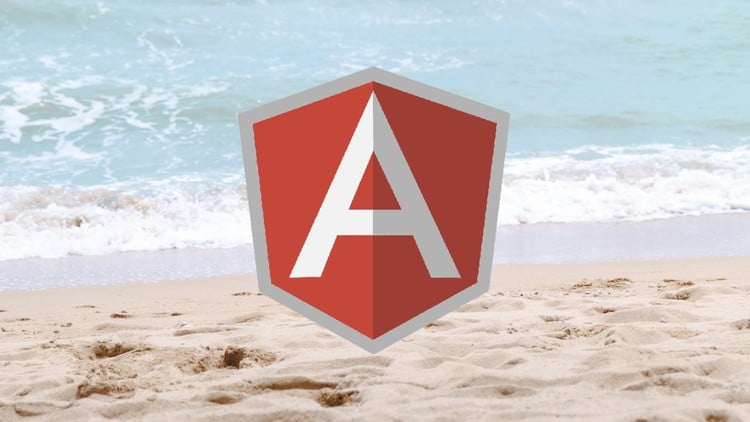
Completely Angular JS Beginners to Advanced Course
⏱️ Length: 2.9 total hours
⭐ 3.66/5 rating
👥 27,983 students
🔄 February 2024 update
Add-On Information:
Note➛ Make sure your 𝐔𝐝𝐞𝐦𝐲 cart has only this course you're going to enroll it now, Remove all other courses from the 𝐔𝐝𝐞𝐦𝐲 cart before Enrolling!
-
Course Overview
- This exceptionally concise and updated course offers a rapid yet comprehensive journey into AngularJS, guiding learners from foundational principles to practical advanced application development. Designed for efficiency, it focuses on equipping students with essential skills to build dynamic, interactive single-page applications. The February 2024 update ensures relevant content, making it an ideal accelerated learning path for aspiring front-end developers eager to master client-side architecture and leverage this influential JavaScript framework for responsive web experiences.
-
Requirements / Prerequisites
- A fundamental grasp of HTML (HyperText Markup Language), as AngularJS extends its structural capabilities.
- Familiarity with CSS (Cascading Style Sheets) is recommended for styling and aesthetic presentation of web applications.
- Solid foundational understanding of JavaScript fundamentals, including core syntax, variables, functions, and control flow.
- Access to a modern web browser equipped with developer tools for effective testing and debugging.
- A preferred code editor or IDE (e.g., VS Code, Sublime Text) to efficiently write and manage your code.
- An open mind and proactive approach to learning new web development paradigms.
-
Skills Covered / Tools Used
- Single Page Application (SPA) Architecture: Learn to design and structure cohesive client-side applications with seamless user navigation.
- Modular Development Practices: Gain proficiency in building maintainable applications through AngularJS’s modular and organized structure.
- Dynamic User Interface Implementation: Create highly interactive UIs that react in real-time to user actions and changes in application state.
- HTML Extension and Customization: Master the creation of custom HTML elements and attributes to build reusable, declarative UI components.
- Application Logic Separation: Understand how to effectively manage and separate application logic from presentation layers for clarity.
- Efficient Data Synchronization: Implement techniques for automatically binding data between your application’s underlying model and the visible view.
- Reusable Component Design: Develop the ability to craft versatile UI elements that can be efficiently reused across different parts of your project.
- Debugging and Problem Solving: Acquire essential skills to identify, diagnose, and resolve common issues encountered during AngularJS development.
- Dependency Injection Understanding: Grasp the core concept of dependency injection, crucial for building flexible and easily testable application components.
- Utilizing Built-in Functionality: Become adept at leveraging AngularJS’s integrated filters for data formatting and services for common web tasks.
- Key Tools: Practical application using modern web browsers for testing, various code editors for efficient coding, and the foundational AngularJS framework itself.
-
Benefits / Outcomes
- Strong Front-End Fundamentals: Establish a robust understanding of client-side framework development, with concepts transferable to other modern JavaScript technologies.
- Interactive Application Proficiency: Develop the tangible ability to architect and implement engaging, data-driven web applications that offer rich user experiences.
- Enhanced Career Flexibility: Acquire skills valuable for roles involving maintenance of legacy systems or foundational front-end development knowledge, broadening career options.
- Structured Code Approach: Cultivate a disciplined and organized methodology for JavaScript application development, leading to more maintainable and scalable codebases.
- Accelerated Development Cycles: Learn to leverage AngularJS to significantly reduce boilerplate code, thereby speeding up the creation and delivery of dynamic web features.
- Sharpened Problem-Solving Skills: Engage with practical challenges to enhance analytical and debugging abilities within a structured web framework context.
- Core Framework Principles: Gain insights into essential software engineering principles like separation of concerns, modularity, and efficient dependency management.
- Confident Project Execution: Emerge with the confidence to independently initiate, develop, and deploy your own interactive web applications, equipped with practical skills.
-
PROS
- High Efficiency: The extremely concise 2.9-hour duration provides a rapid, direct learning path to AngularJS concepts without unnecessary bulk.
- Up-to-Date Content: Benefiting from a February 2024 update, the course offers relevant information and current practices for the framework.
- Proven Popularity: With nearly 28,000 students, its wide appeal indicates effective content delivery and strong student engagement.
- Ideal for Quick Refreshers: Perfect for developers needing a swift review of AngularJS fundamentals or an introduction to its core architecture.
- Comprehensive Scope: Aims to cover a broad spectrum from beginner to advanced topics, offering a holistic view of the framework’s capabilities.
- Accessible Entry: Designed to be easily understandable for individuals with basic JavaScript knowledge, lowering the barrier to framework learning.
-
CONS
- Limited Depth for “Advanced”: The very short length suggests complex “advanced” topics might be presented superficially, likely requiring independent study for true mastery and practical application.
- Legacy Framework Status: AngularJS (version 1.x) is an older technology. While foundational, modern industry trends favor newer frameworks like Angular (2+), React, or Vue.js for new development, potentially limiting immediate job market relevance.
Learning Tracks: English,Development,Web Development
Found It Free? Share It Fast!